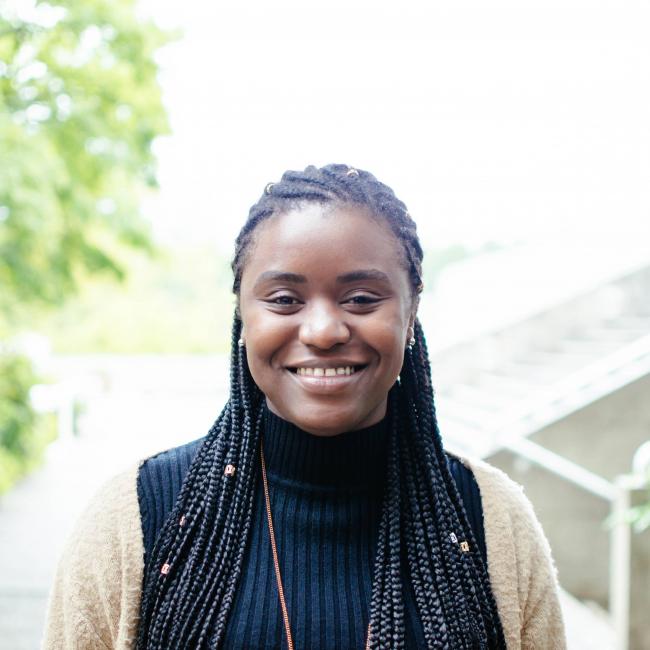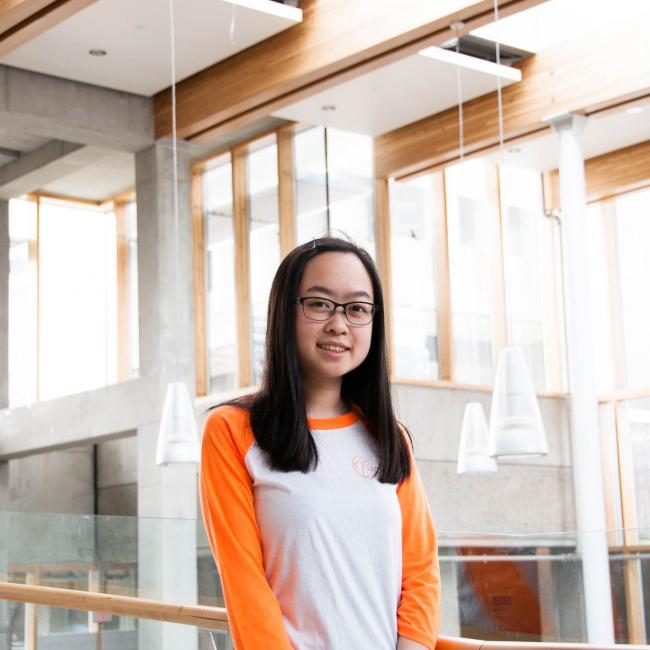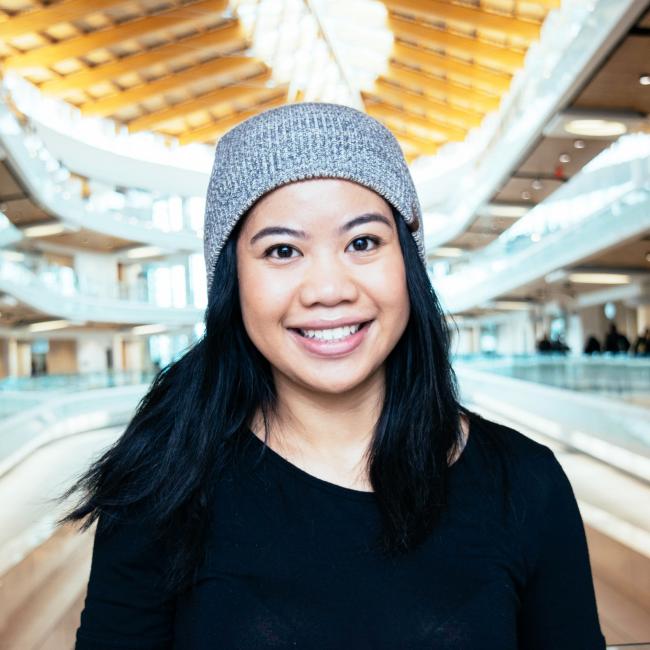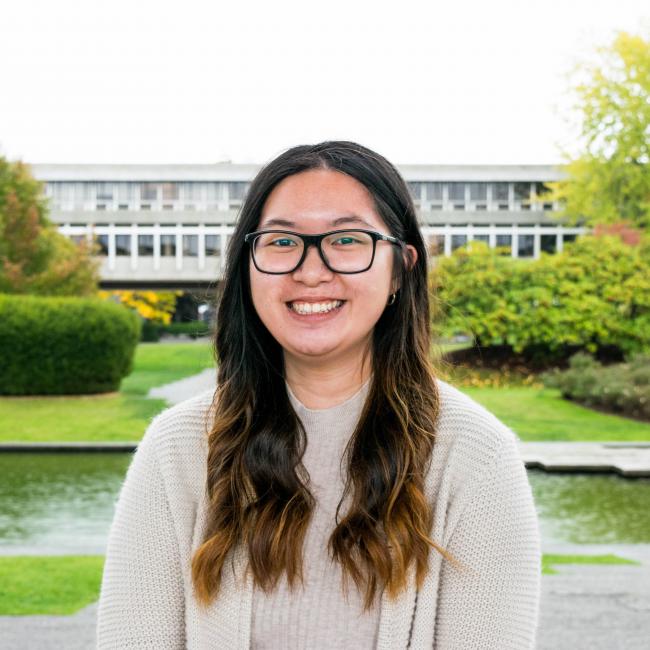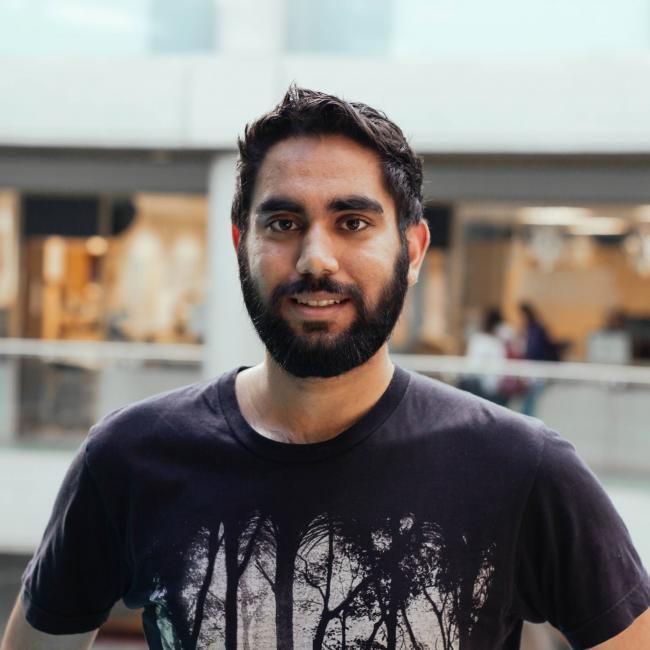
Landing an internship at an embassy is a dream come true for students interested in diplomacy, foreign policy, international trade and development. Students have the opportunity to gain invaluable experience in dynamic, fast-paced, and highly rewarding environments, while learning from leaders in international relations.
In a three-part series, we caught up with SFU students who have completed internships at Canadian Embassies, to hear their thoughts on how they prepared to apply, interview, and ultimately relocate for their position.
In 2016, Alexander King, worked as the Trade Commissioner Service intern with Canada’s Embassy to Myanmar. Here, Alex shares his thoughts on why it’s crucial to demonstrate progress and achievements on your resume, and the value in persistence.
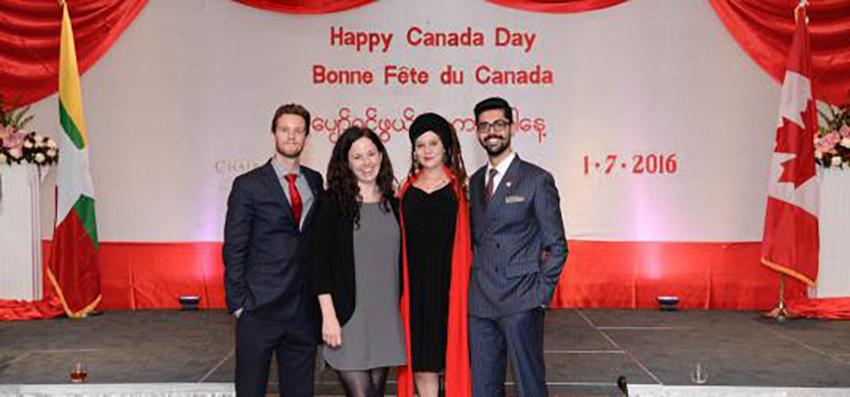
What academic and professional experience did you have before you applied for your internship? Do you feel that there was something specific about your background that helped you land the job?
By the time I landed the internship at the Canadian Embassy to Myanmar I was already near the completion of my degree and had worked, both through co-op and outside of school, in jobs that complemented my educational experience in regards to the position I took at the Embassy.
Before applying to the Canadian Embassy in Myanmar, I had completed a co-op at the US Consulate in Vancouver working in the POL/ECON section, had spent a semester living in China, and had travelled a few times to Asia for youth conferences. I also had other jobs that helped to round out my experience in things like research, events, and communication. I believe my previous experience at the US Consulate helped me stand out by showing that I had worked in an environment that dealt with similar issues to what I would be seeing at the Embassy. My time in China and travel for youth conferences showed that I could work effectively in stressful and highly demanding positions, and that I had experience working abroad.
Most importantly, in all the experiences I had before applying to the Embassy, I illustrated very clearly how in each case I had “moved the ball forward” in some way. I made sure to communicate specific and measurable successes I had in each position, whether it was organizing a successful event or being recognized in some way by the quality of my work. The importance of this cannot be overstated!
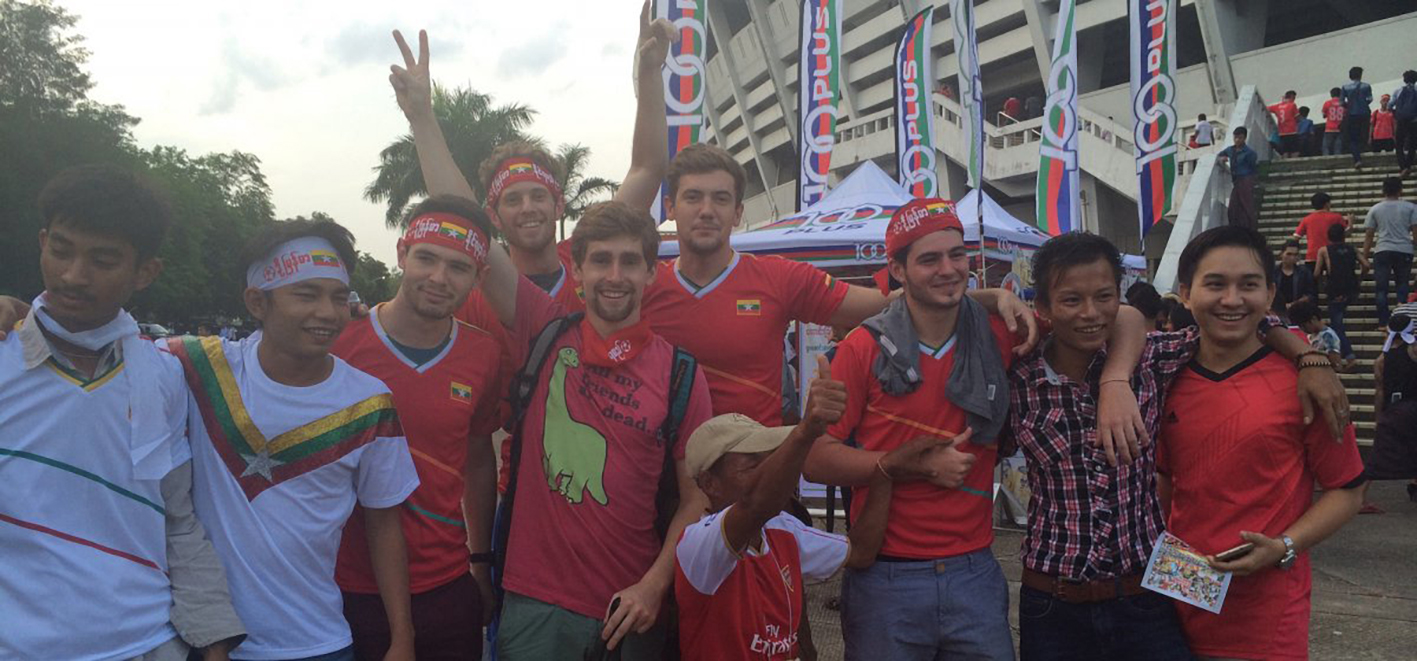
Were you strategic in the co-op positions you applied to before the internship? Did you choose other positions prior to applying to an embassy to help build your experience?
I was strategic in applying for positions when I had more of a luxury to do so. The problem for many students, particularly those who are just beginning their undergrad or who are searching for their first co-op, is that they often lack experiences to make them stand out from the pack and help them land those more prestigious and sought-after jobs. They will apply to many positions and be rejected by a large majority of them. I was no different. Being strategic is important, but be careful not to be too picky either - at least for your first co-op or work experience. I applied to a variety of position that related to my programs of study, all with an eye on how they could be built into a career after university. But I made sure to keep myself open to positions that might not have ticked all the boxes for a perfect job but still helped me progress in some way towards a career in my field. The key is to find a balance between casting a wide enough net in your co-op search and applying for positions that will add something to your skillset/resume/career vision. Once you have one co-op under your belt you can afford to be a bit more focused and picky.
I would strongly suggest students use the multitude of student organizations, government-affiliated groups, and private businesses to enhance their search for a co-op. For example, AIESEC is an organization I would recommend for first time co-op seekers to really expand the potential opportunities available to them. Focusing your co-op search solely on opportunities advertised by the co-op office can handicap your chances of finding a co-op opportunity.
Were there barriers that you faced in the application process? Did you have to apply more than once, or have trouble finding an internship that fit your qualifications?
The barriers I faced were simply my qualifications and what I was willing to commit to professionally for any given position. For my area of interest, an extra language is incredibly useful and can be a barrier to qualifying for some positions. Your ability to relocate or spend multiple semesters at a position are other barriers that might deter people.
As I said above, I had trouble getting my first co-op since I had very little transferable experience from previous jobs at the time. This is simply due to a lack of experience related to the field I was trying to enter. Naturally I had to find opportunities with a lower barrier of entry. The SFU co-op department does have positions of this kind, but I recommend using outside organizations to augment your search. I found AIESEC to be very helpful in providing more opportunities with lower barriers of entry. The opportunities are generally not as high a quality as those found with SFU Co-op but they are more accessible to first time seekers.
What was the interview like and how did you prepare?
Strangely, the interview I had for the position was unlike any I had before. My interviewer seemed ready to bring me on board from the start of the call. The interview proceeded to be about what I could expect when I arrived and how the Embassy and the office operated. It was very much a conversation about where we each saw the Embassy in the coming year and what I could add to that vision.
Nonetheless, I always go over my resume and most recent professional positions as preparation, so I can reacquaint myself with the key accomplishments I wish to communicate to the interviewer.
Show genuine interest and curiosity in the position – that means doing enough research beforehand on the position and organization so that you can ask informed questions and even suggest ideas.
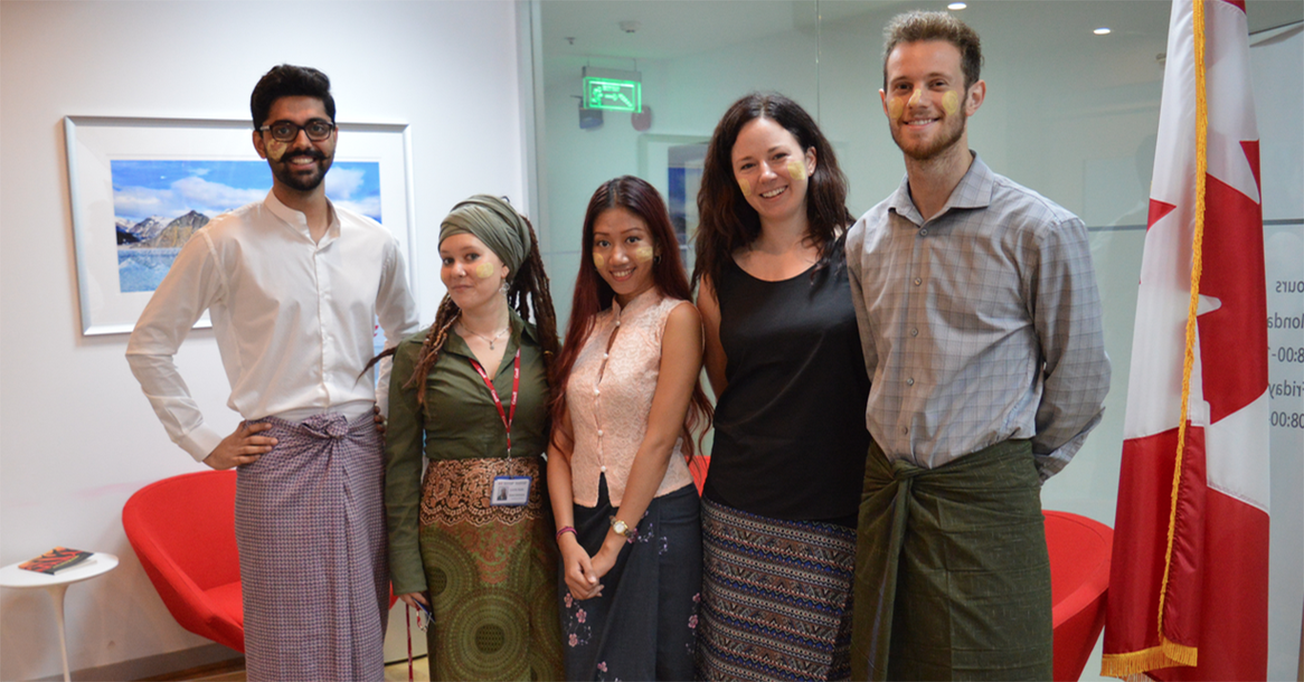
How did you prepare to relocate? What sort of advice would you give to students who might be apprehensive about relocating for co-op?
I prepared my relocation by learning as much as I could about Myanmar, the city of Yangon where I would be working, and the neighbourhood I would be living in ahead of time. If possible get in contact with people who are already there or who were there in the past either as part of work experience, their studies, and even expat communities. Most expat communities have online forums or Facebook groups to chat, ask questions, and generally support each other through the transition of moving. Having a support network will go a long way to making you feel comfortable in your relocation. Another very important aspect of relocating for me was planning out everything in advance and having everything ready for me when I got there. That included finding a place to live before I arrived, learning about the phone plans and how I could switch over to a Myanmar network, and even learning some basic phrases in Burmese so I could perform basic tasks like buying food.
For those who are apprehensive I would remind them that there will be few better times to do this sort of thing than when you are still young (most students are!), getting an education, and when the position isn’t necessarily too long term (as most co-ops tend to be only a semester or two). Relocating as part of a future career will most likely require a bigger commitment than an SFU co-op, at least in terms of time. I would highly suggest students experience what its like to work abroad while the commitments and requirements for such opportunities are more flexible and palatable.
Do you have any additional advice for students considering applying for an embassy internship?
Be persistent in your pursuit of the job. It won’t always happen overnight. It took me a couple of years before I acquired the qualifications needed to be have a competitive chance of being selected for an Embassy internship. If you are not accepted, find other ways to augment your experience and work towards the goal.
Personally, I was an International Studies student who wanted to specialize in Canada’s relations with the Asia-Pacific. I wanted to find work that would relate to that professional passion of mine. When I originally wasn’t successful in finding a co-op that I desperately wanted (Embassy, Consulate, Canadian and Provincial government etc.) I looked for other ways I could move towards that goal. My first breakthrough came when I took a 5-month teaching job in Dalian, China. While the job itself was not related to my core interests, it challenged me in ways I couldn’t imagine, and helped me tick off boxes I wanted to tick off. It exposed me to Chinese culture and language (I wanted to start learning Chinese for professional reasons), gave me connections in China, and ultimately became the springboard for my next breakthrough – an invitation to represent Canada at the APEC Youth Summit in Beijing in 2014, which I attended while still working in China. From there the successes and subsequent jobs came much easier as I gathered momentum behind my initial breakthroughs. The point I want to communicate is that there are multiple ways to get somewhere. The most important thing when you are just starting out is to get your foot in the door. You never know where it might lead and what opportunities it will open up for you. Your perfect co-op won’t always be accessible to you at the start of your undergrad, but with some planning and determination you can work your way there.
Beyond the Blog
-
To learn more about opportunities like Alexander's, visit the International Co-op homepage.









